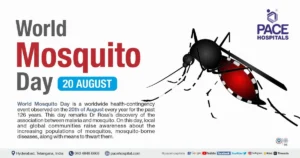WORLD POPULATION DAY 2025: UNDERSTANDING POPULATION DYNAMICS AND PROMOTING SUSTAINABLE DEVELOPMENT
On July 11, 2025, we observe World Population Day, a global event dedicated to raising awareness about the challenges and opportunities of population growth and its implications on sustainable development. At BG Pharma and Healthcare Ltd, we recognize the importance of understanding population dynamics and the essential role they play in shaping the future of global health, economy, and environment. World Population Day serves as an opportunity to address critical issues like reproductive health, family planning, gender equality, and the need for policies that promote sustainable growth while ensuring that future generations inherit a world that is thriving, equitable, and healthy.
The Significance of World Population Day
World Population Day was established by the United Nations Development Program (UNDP) in 1989 to draw attention to the urgent need to address population-related issues. With an estimated 8 billion people on Earth in 2023, the global population continues to grow rapidly, placing immense pressure on natural resources, healthcare systems, and the environment. While population growth brings opportunities for innovation and progress, it also presents significant challenges that require immediate action from governments, businesses, and individuals.
Global Population Growth: The Trends and Challenges
The world population has grown exponentially over the last century, driven largely by advances in healthcare, agriculture, and technology. While the global population growth rate has slowed in recent decades, the total number of people on Earth continues to rise.
1. Current Population and Growth Projections: As of 2023, the global population is estimated to be around 8 billion, and it is projected to reach 9.7 billion by 2050. The majority of this growth is expected to occur in developing countries, particularly in Sub-Saharan Africa and Asia, where birth rates remain higher than in more developed regions.
2. Aging Populations: In developed countries, populations are aging rapidly due to lower birth rates and higher life expectancy. By 2050, it is estimated that one in six people in the world will be over the age of 65, with significant implications for healthcare systems, pensions, and social services.
3. Urbanization: Over half of the world’s population now lives in urban areas, and this number is expected to grow, with UN estimates suggesting that 68% of the global population will be urban by 2050. Urbanization presents both opportunities and challenges, including the need for infrastructure, healthcare, and sustainable urban planning.
4.Youthful Populations in Developing Countries: Many developing nations, particularly in Africa and parts of Asia, have a predominantly youthful population. This demographic presents both an opportunity for economic growth (the demographic dividend) and a challenge in providing education, employment, and healthcare services for young people.
The Impact of Population Growth on Sustainable Development
Sustainable development requires that we balance the needs of current generations without compromising the ability of future generations to meet their own needs. Population growth has significant implications for several key areas of sustainable development:
1. Health and Well-being: A growing population places increased demand on healthcare services. Access to quality healthcare, reproductive health services, and family planning methods are vital in addressing the health needs of expanding populations. Maternal health, child health, and the prevention of communicable diseases must remain a priority for governments and health organizations worldwide.
2. Education: Education, particularly for girls and women, is one of the most powerful tools for managing population growth. Educated individuals tend to have fewer children and invest more in the health and education of their families, creating a cycle of development and prosperity.
Access to education is essential to ensure that the future workforce is skilled, healthy, and prepared to meet the challenges of the modern economy.
3. Gender Equality: Gender equality is directly tied to population dynamics. Empowering women and providing access to family planning, reproductive health services, and equal economic opportunities can significantly reduce birth rates and improve the health and well-being of families. Women’s rights, including access to education, employment, and reproductive choices, are essential for ensuring equitable population growth.
4. Climate Change and Environmental Sustainability: Population growth, particularly in urban areas, increases pressure on natural resources, energy, and food systems. This exacerbates the environmental challenges of climate change, deforestation, water scarcity, and pollution. Sustainable resource management and environmental conservation efforts are critical in mitigating the impact of population growth on the planet.
5. Economic Growth and Employment: A growing population can provide a boost to the economy, especially if the working-age population increases. However, if not properly managed, it can also lead to higher unemployment, inequality, and poverty.
Investing in infrastructure, creating jobs, and ensuring equal access to opportunities are key to harnessing the economic potential of population growth.
The Role of Family Planning and Reproductive Health
One of the most effective ways to address population-related challenges is through family planning and reproductive health services. Ensuring access to contraception, maternal healthcare, and reproductive rights can help individuals make informed choices about their family size and improve the health and well-being of both women and children.
1. Family Planning: Family planning allows individuals and couples to decide the number and spacing of their children, improving maternal and child health outcomes and promoting gender equality.
Globally, there are still many barriers to access, including lack of education, cultural taboos, and limited healthcare infrastructure. Addressing these barriers is crucial for controlling population growth and improving public health.
2. Reproductive Health: Reproductive health services that include maternal care, safe childbirth, and early interventions in cases of high-risk pregnancies are critical in reducing infant and maternal mortality rates.
Educating individuals, especially women, about their reproductive health choices and rights empowers them to make informed decisions about their health and family life.
BG Pharma’s Commitment to Population Health
At BG Pharma and Healthcare Ltd, we are committed to improving global health through innovation, education, and the development of healthcare solutions that address population-related challenges. Our focus on reproductive health, family planning, and disease prevention is aligned with the goals of World Population Day, and we are dedicated to supporting initiatives that promote healthy, sustainable population growth.
Some of our key initiatives include:
1. Providing Access to Family Planning: We are actively involved in creating solutions that make contraceptives and reproductive health services more accessible to individuals and communities, especially in underserved areas.
2. Supporting Maternal Health: Our research and development efforts are focused on creating treatments and interventions that improve maternal health, reduce maternal and infant mortality rates, and ensure that families have access to quality healthcare.
3. Promoting Gender Equality: We support initiatives that empower women through education, healthcare, and equal opportunities, ensuring that they have control over their reproductive health and the ability to make choices that impact their futures.
4. Sustainability and Environmental Health: We are committed to sustainable practices in our production and operations, aiming to reduce our carbon footprint and contribute to global efforts to combat climate change and environmental degradation.
How You Can Get Involved on World Population Day
World Population Day is a time for reflection and action. Here are some ways you can contribute to creating a more sustainable and equitable world:
1. Educate Yourself and Others: Raise awareness about population-related challenges, such as access to family planning, reproductive health services, and the importance of sustainable development.
2. Advocate for Family Planning and Reproductive Health: Support policies and programs that provide access to contraceptives, maternal care, and reproductive health education, especially in low-income and underserved regions.
3. Support Sustainable Practices: Embrace sustainable living practices, reduce waste, conserve resources, and encourage others to do the same. Small actions can have a significant impact on the planet.
4. Empower Women and Girls: Advocate for gender equality, education for girls, and women’s rights. Empowering women is key to addressing population challenges and promoting equitable development.
Conclusion: A Path Toward Sustainable Population Growth
World Population Day 2025 is a reminder that population dynamics are deeply intertwined with global health, environmental sustainability, and social equity. By prioritizing access to family planning, reproductive health, education, and gender equality, we can ensure that the world’s growing population thrives in a way that benefits everyone.
At BG Pharma and Healthcare Ltd, we remain committed to supporting the health and well-being of individuals and communities worldwide through innovative healthcare solutions and initiatives that address the challenges of population growth. Together, we can create a future where sustainable development, equality, and health are at the forefront of global efforts.
Stay connected with BG Pharma and Healthcare Ltd. Follow us on our social media channels and visit our website for more information on population health initiatives, sustainability, and how you can get involved.



